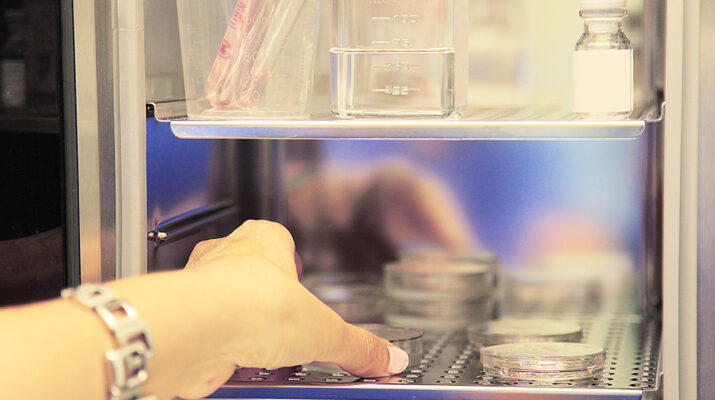By Barbara Pierce
Many women want to have children someday. Someday…in the future.
First, they want to establish their careers or find the right life partner.
Fertility rates are at an all-time low. Women in their 20s aren’t having babies. They’re freezing their eggs. This gives them the chance to put off that dreaded ticking of the biological clock.
Demands for the freezing of eggs are skyrocketing. It’s as revolutionary as the pill was in the 1960s. What previously was a stigma is not anymore.
“One could certainly say that, in many ways, egg freezing is giving women the same kind of reproductive control that the birth control pill provided decades ago,” said physician Robert Kiltz, founder and director of CNY Fertility in Syracuse.
This used to be an ‘out-there’ procedure, considered experimental because of the uncertain odds. But thanks to better success rates, it’ become an empowering way to buy time and have a baby on your own terms.
We’ve asked Kiltz to update us on what egg freezing is all about.
Q: Briefly, what is the process?
A: In simple terms, the procedure takes about two weeks. A woman takes daily hormone injections at home to encourage her ovaries to produce multiple eggs. Then, in a short outpatient procedure, those eggs are collected while she’s under light sedation. The eggs are then flash-frozen and stored until she’s ready to use them.
The hormone injections cause your ovaries to make multiple eggs in a cycle instead of just one. The salvaged eggs are then frozen, to be used when you need them in the future.
According to the Fertility and Gynecology Academy in London, online, there is no evidence of a rise in chromosomal abnormalities, birth defects or developmental problems in children conceived using frozen eggs. In fact, conception with higher quality frozen eggs that are retrieved when you’re younger can decrease the hazards of older motherhood — such as miscarriage and genetic and chromosomal defects. A woman aged 40 or older has markedly better odds of enjoying a healthy pregnancy using frozen eggs that were retrieved when she was younger than trying with her fresh eggs that are more than 40 years old.
Q: Is the process difficult, time–consuming or expensive?
A: For most women, it’s manageable. The shots can feel a little intimidating at first, but patients usually handle them very well. The procedure itself is quick and most people are back to normal the next day.
The biggest hurdle is often the financial one. Costs in the U.S. can run several thousand dollars for one cycle, plus medications and storage fees. At CNY Fertility, we’ve worked hard to change that, our egg freezing is about one-third the cost of the national average, and we also offer in-house payment plans to make it even more accessible.
Q: Are some corporations offering this in their insurance?
A: Yes. Increasingly, employers, especially in industries like tech, are covering egg freezing as part of their benefits. That’s been a major factor in growing access and awareness.
Q: What is the prime time to harvest eggs? Who would be too old for it to be successful?
A: The younger the eggs, the higher the quality and the better the chances later on. Freezing in your 20s or early 30s gives the strongest results. That said, not everyone in their 20s needs to freeze, it depends on individual circumstances. As women enter their late 30s and 40s, the number and quality of eggs naturally decline. There isn’t a strict age cutoff, but success rates certainly fall and patients may be recommended alternative treatments.
The quality of your eggs declines as you age, increasing the likelihood of embryos with genetic abnormalities. These abnormalities can lead to miscarriages. This means that as your age goes up, your egg quality goes down. “Older” eggs are more likely to produce a baby with chromosomal anomalies, says the Cleveland Clinic online. While these risks are still low, they increase with age.
Also, the number of eggs available to a woman decreases with age. Not only quality, but quantity decreases.
Q: Anything else we should know?
A: Modern freezing techniques are highly effective. Eggs survive the thawing process at very high rates and children born from frozen eggs are just as healthy as those from fresh eggs. With affordable options like CNY, it is a much more realistic option than many think.
It’s also important to remember that egg freezing is not a guarantee of a baby. It’s a way of preserving options and improving chances, but it doesn’t eliminate all the challenges of fertility. Having open conversations with a knowledgeable care team is essential.

